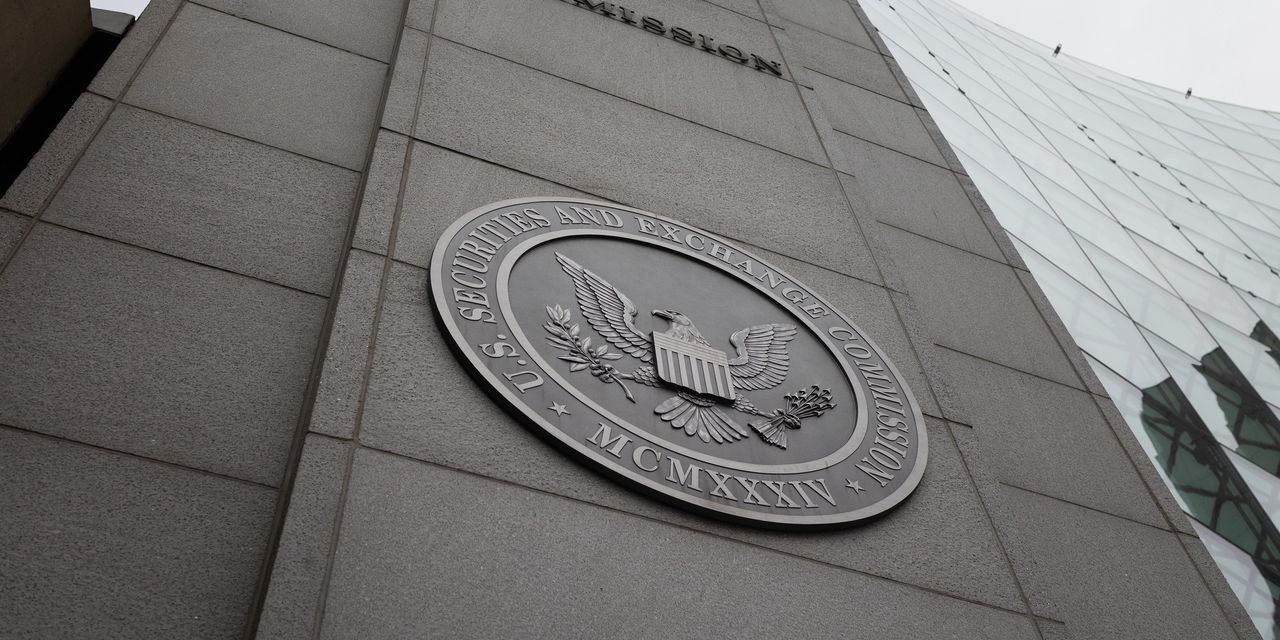
WASHINGTON—Federal regulators proposed measures that would significantly increase their visibility into private-equity funds and some hedge funds, the first in a range of plans to expand oversight of private markets.
The Securities and Exchange Commission voted 3-1 to issue a proposal that would increase the amount and timeliness of confidential information that private-equity and hedge funds report to the agency on a document known as Form PF.
The main goal, Chairman Gary Gensler said, is to allow regulators to better spot risks building up in private markets, stepping up an effort that began after the 2008 financial crisis.
The commission, in a meeting Wednesday, also voted 3-1 to propose expanding oversight of some trading platforms that match buyers and sellers of U.S. Treasury securities. The agency will seek comment on the proposals before completing the rules, a process that could take several months at least.
Hester Peirce, the commission’s only Republican, voted against both proposals. She questioned the need for increased disclosures from private funds and dissented from the trading-platforms rule because she said the 30-day comment period is too short.
Net assets managed by private funds, which are accessible only to institutional investors or relatively wealthy people, rose to $11.7 trillion in the first quarter of last year from $5.3 trillion in 2013, SEC data show.
SHARE YOUR THOUGHTS
How should the SEC approach private-equity funds and Treasury debt? Join the conversation below.
With the growth have come concerns from some policy makers about the potential for unseen risks to accumulate in a corner of the market that is far less transparent than mutual funds or publicly traded companies.
The SEC adopted Form PF as part of the regulatory overhaul after the 2008 financial crisis. Currently, it is filed by private-equity funds and large hedge funds on an annual or quarterly basis with a 60-day lag. The form includes information such as net assets, borrowings and derivative holdings. The SEC and federal financial-stability regulators then aggregate that confidential data in public reports.
“We have identified significant information gaps and situations where we would benefit from additional information,” Mr. Gensler said in a written statement.
He added that regulators have nearly a decade of experience with Form PF data. “For example, we would benefit from more timely information during fast-moving market events.”
Among other changes, Wednesday’s proposal would require large hedge funds to file reports within one business day of incidents such as extraordinary investment losses, large increases in margin requirements or defaults by major counterparties.
Private-equity funds would have to file reports within one business day of events such as removal of a fund’s general partner or termination of a fund’s investment period.
In addition, the proposal would reduce the threshold that triggers reporting as a large private-equity adviser to $1.5 billion from $2 billion in assets under management. It would also require such entities to provide more information about their use of leverage and their portfolio companies.
Ms. Peirce said the proposed changes would turn Form PF into a “tool for the government to micromanage” private funds.
“A hedge fund suffering losses equal to or greater than 20% of its net asset value over the course of 10 days is unquestionably significant for that hedge fund and its investors,” Ms. Peirce said. “But why is it appropriate or even wise for the commission to insist on being notified of this within one business day? Surely the fund adviser will have its hands full in such a fraught period, and will have little time to spare to fill out government forms.”
The Managed Funds Association, which lobbies Washington on behalf of hedge funds, said it supports the SEC’s objective of gathering relevant data from market participants in a crisis.
“We want to study the details to ensure that this proposal is calibrated to collect information at the right interval and granularity without inadvertently capturing routine activity,” spokesman Noah Theran said in a statement.
Mr. Gensler, who was nominated last year by President Biden, said Treasury Secretary Janet Yellen and Federal Reserve Chairman Jerome Powell highlighted the need for more-timely information on private funds during his first meetings with those officials.
“When I was coming into office last April, it was very much on everybody’s mind,” he said, noting the rapid deterioration in financial markets that had occurred at the onset of the Covid-19 pandemic in March 2020. “There were dysfunctions across various markets at that point in time.”
The SEC chief has outlined additional ways to address some Democrats’ concerns that private markets have become too big and risky over the past decade or so.
Last year, he said the SEC is considering new rules to increase disclosures by private-equity firms and hedge funds to their investors about their conflicts of interest and sometimes opaque fee structures.
The agency is also working on a plan to require more private companies to routinely disclose information about their finances and operations, and potentially increase the amount of information that some nonpublic companies must file with the agency.
Wednesday’s proposal for Treasury trading platforms would target entities the SEC calls Communication Protocol Systems, which aren’t subject to the agency’s current regulations for securities exchanges even though they bring together buyers and sellers of stocks and bonds. The platforms, which are operated by companies including Tradeweb Markets Inc., would be required to register with the SEC as either exchanges or broker-dealers.
“Tradeweb is a proponent of thoughtful regulation that promotes greater efficiency and transparency, and we look forward to providing comment on today’s proposal,” a spokesperson for Tradeweb said.
Write to Paul Kiernan at [email protected]
Copyright ©2022 Dow Jones & Company, Inc. All Rights Reserved. 87990cbe856818d5eddac44c7b1cdeb8








